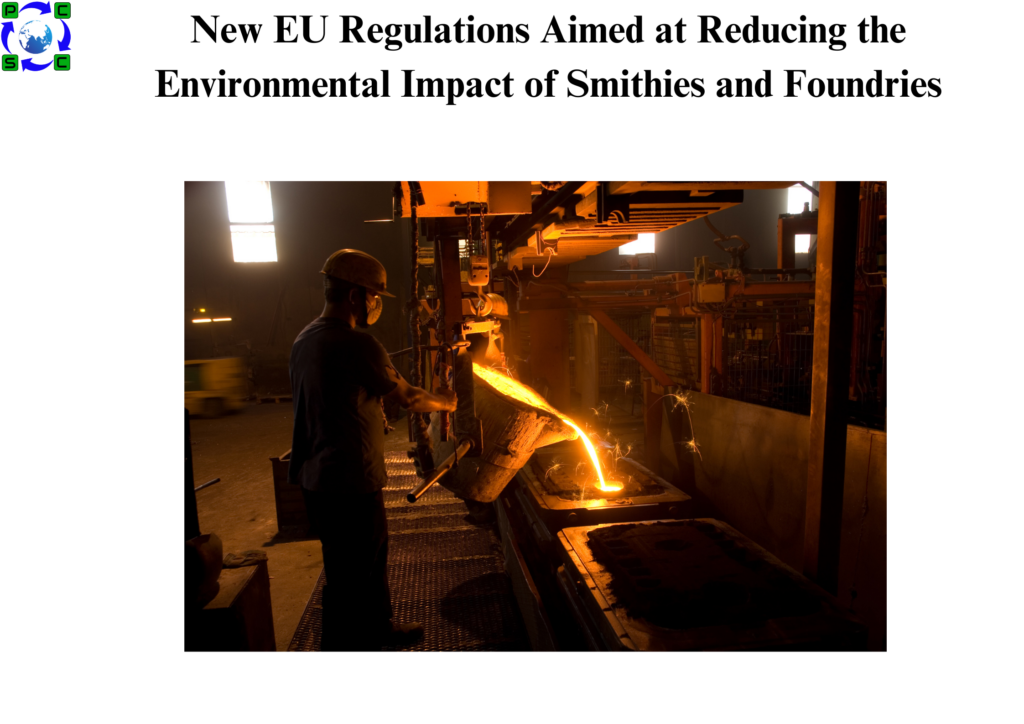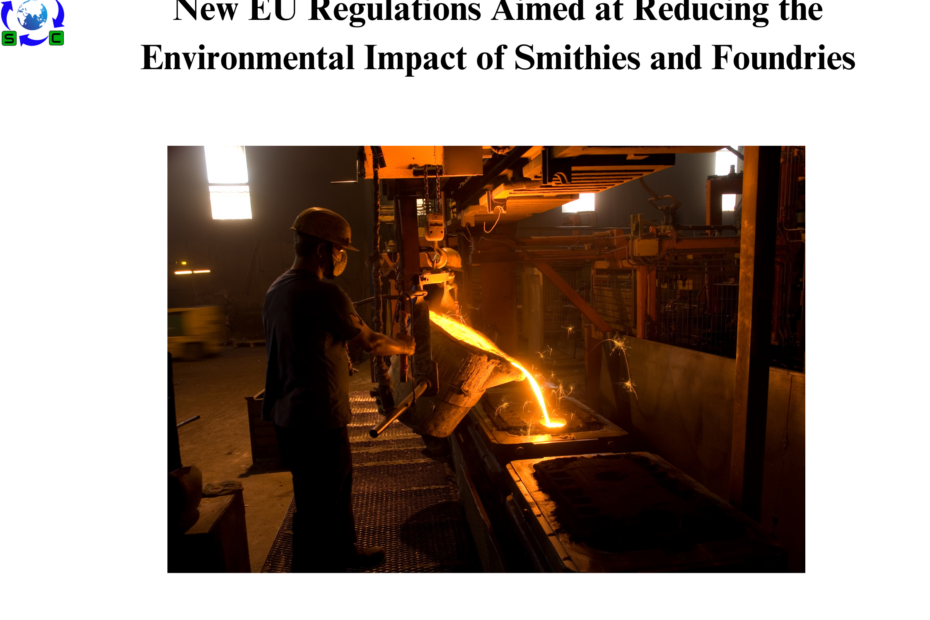
The European Commission has unveiled new regulations for smitheries and foundries aimed at reducing their environmental and human health impacts. These regulations, known as Best Available Techniques (BAT) conclusions, will be enforced across approximately 1,000 ferrous and non-ferrous metal foundries. For the first time, they will also extend to 25 smitheries using hammers in their forging processes.
Existing facilities will have four years to comply with these stricter standards, while new installations must adhere to the requirements immediately. The revised regulations focus on reducing emissions to air and water, while also addressing various environmental concerns in line with circular economy goals. These include enhancing energy efficiency, minimizing water and raw material consumption, and reducing waste generation.
The regulations encourage the substitution of hazardous raw materials with more sustainable alternatives, such as using binders with low or no emissions in foundries. They also promote decarbonization and pollution reduction in the sector by supporting the use of fossil-free energy sources for heating in foundries.
The new rules are designed to simplify and streamline the permit-setting process for smitheries and foundries across the EU by offering a clear reference for Member States in granting integrated permits.
These new norms were developed under the EU’s Industrial Emissions Directive (IED), a key component of the EU Zero Pollution Action Plan. They are based on an updated Best Available Techniques Reference Document (BREF) for the smitheries and foundries sector, which was created through a collaborative process involving industry representatives, EU authorities, and environmental NGOs.
Background:
The Industrial Emissions Directive (2010/75/EU, amended by Directive (EU) 2024/1785) provides a framework for regulating around 75,000 industrial and livestock rearing installations in the EU. It mandates that these installations obtain permits based on the use of BAT. An EU-level information exchange leads to the creation of BAT reference documents and conclusions.
The preparation and review of these documents are managed by the Joint Research Centre’s European Bureau for Research on Industrial Transformation and Emissions (EU-BRITE), located in Seville, Spain.
Stay ahead in the world of sustainability compliance with Global PCCS, where expert insights meet the latest regulations. Unlock a future where compliance drives sustainability and your business thrives in a greener, regulated landscape.








 Authorised IMDS & CDX Training & Consulting partner for
Authorised IMDS & CDX Training & Consulting partner for






